In Issue #113 of Singletrack Magazine, we tested 17 different pedals as part of our Flat Pedal Group Test
With a claimed weight of just 298 grams, Gamut’s Podium flat pedals are the lightest we have on test. They’re also the thinnest, with the slenderest part at just under 9mm, average at the edges around 10mm, and axle housing at the centre of the body still only 13.5mm. That’s not much space to pack moving parts in, but they’ve managed it. The pins are very toothy, sticking up 5mm from the surface and providing plenty of space for your shoe soles to settle into.
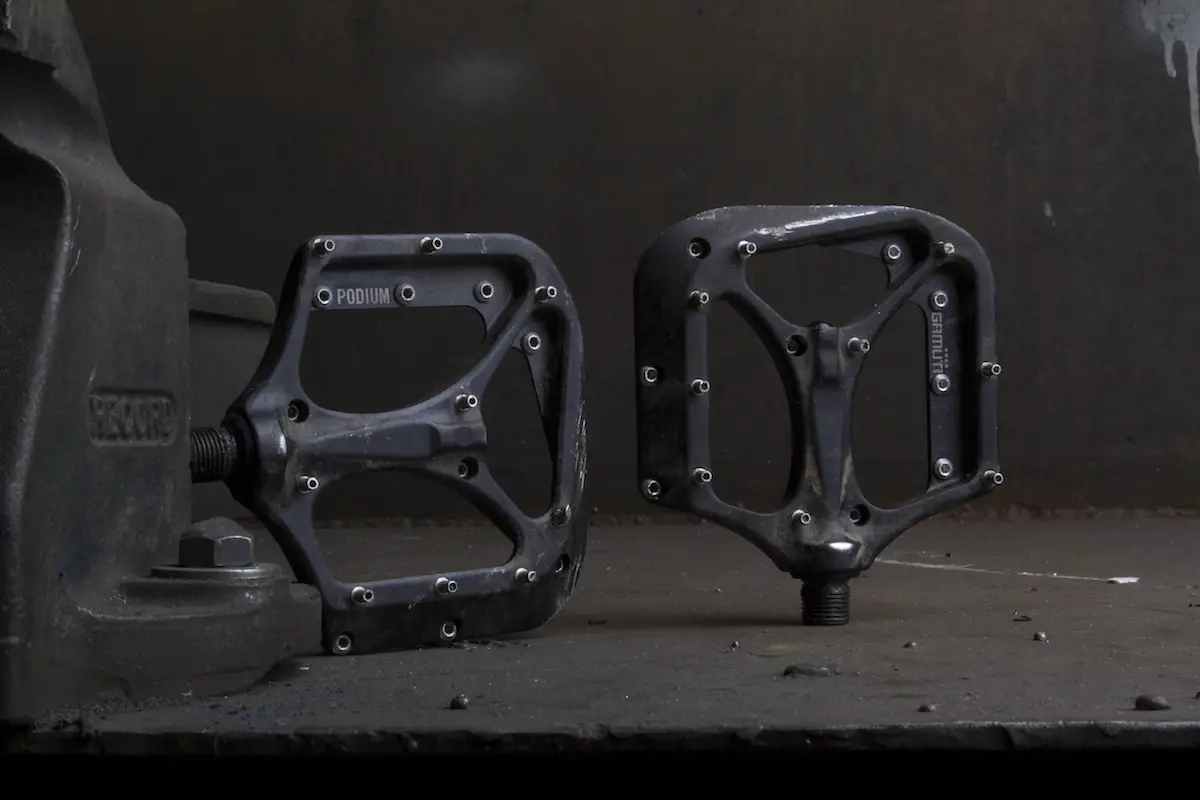
There was an older version of the Podium, originally made by Point One, with an exposed axle and fewer bearings. For the subsequent version 2.0, the axle was entirely packed away, and an extra bearing added. On acquiring Point One, Gamut stuck to the basic design but moved to these extremely organic looking forged pedal bodies. Hiding the axle was apparently not so much about having a completely sealed system, but more that the exposed nickel coating on the axle would wear over time, so more of an aesthetic decision. The extra bearing near the end of the axle though gives them a lot more weight bearing ability, and hence longer life before the bearings give up.
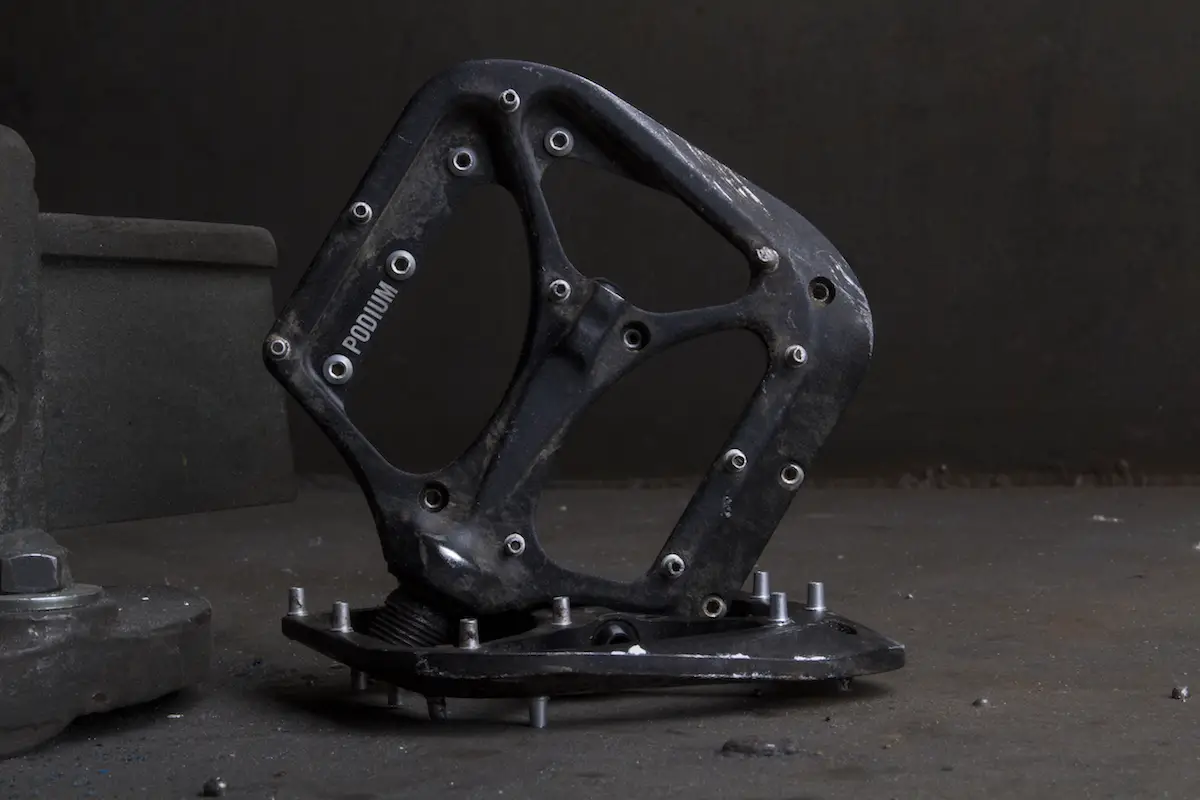
At the crank end of the pedal is a much larger bearing, with the associated bulge some riders hate and others don’t mind. I’m in the latter camp as my feet seem to naturally spread to a wider q-factor, so found the Podiums comfortable. In a clever sleight of hand, Gamut has packed a pedal pin right in next to the bulge, reducing its obviousness underfoot and also increasing grip in that area.
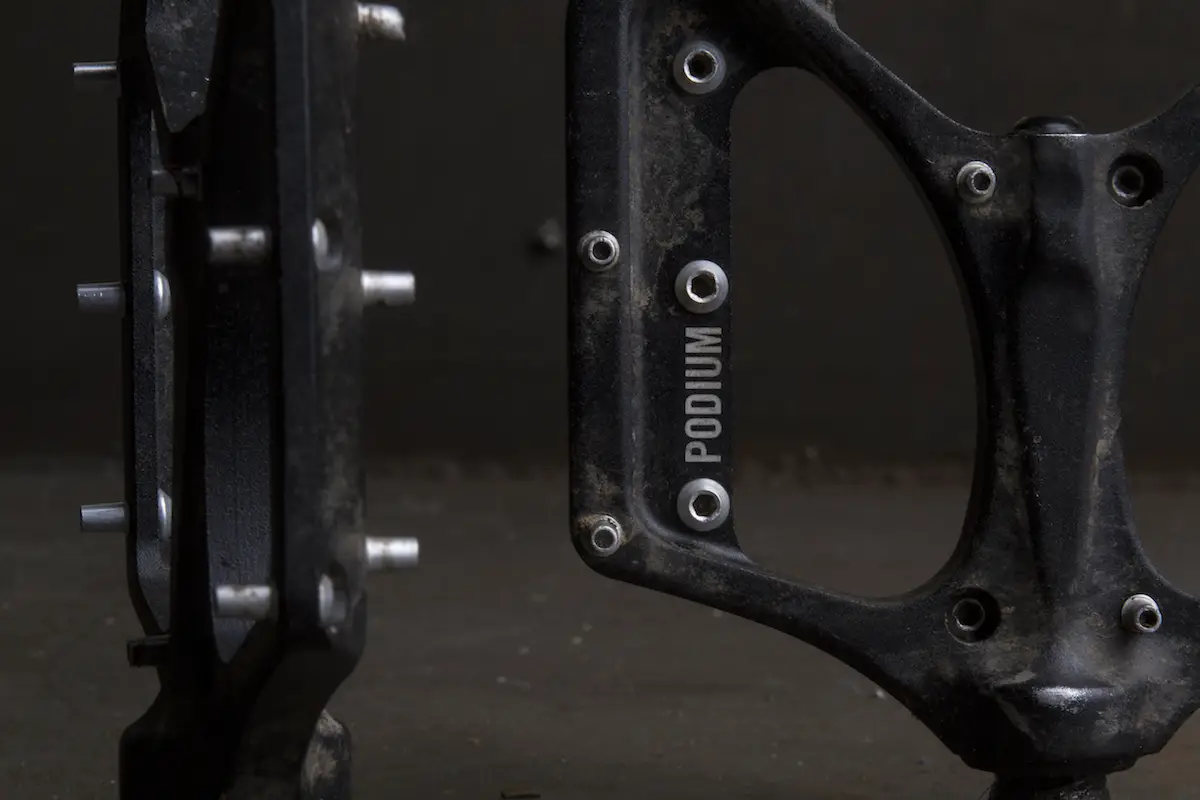
I’ll stick my hand up and tell the class that I was very cruel to the pedals in this grouptest, because I put them on a plus bike running standard tyres. That dropped the bottom bracket, making the bike prone to pedal strikes. Mean, yet fair when you’re testing seventeen pairs of flats.
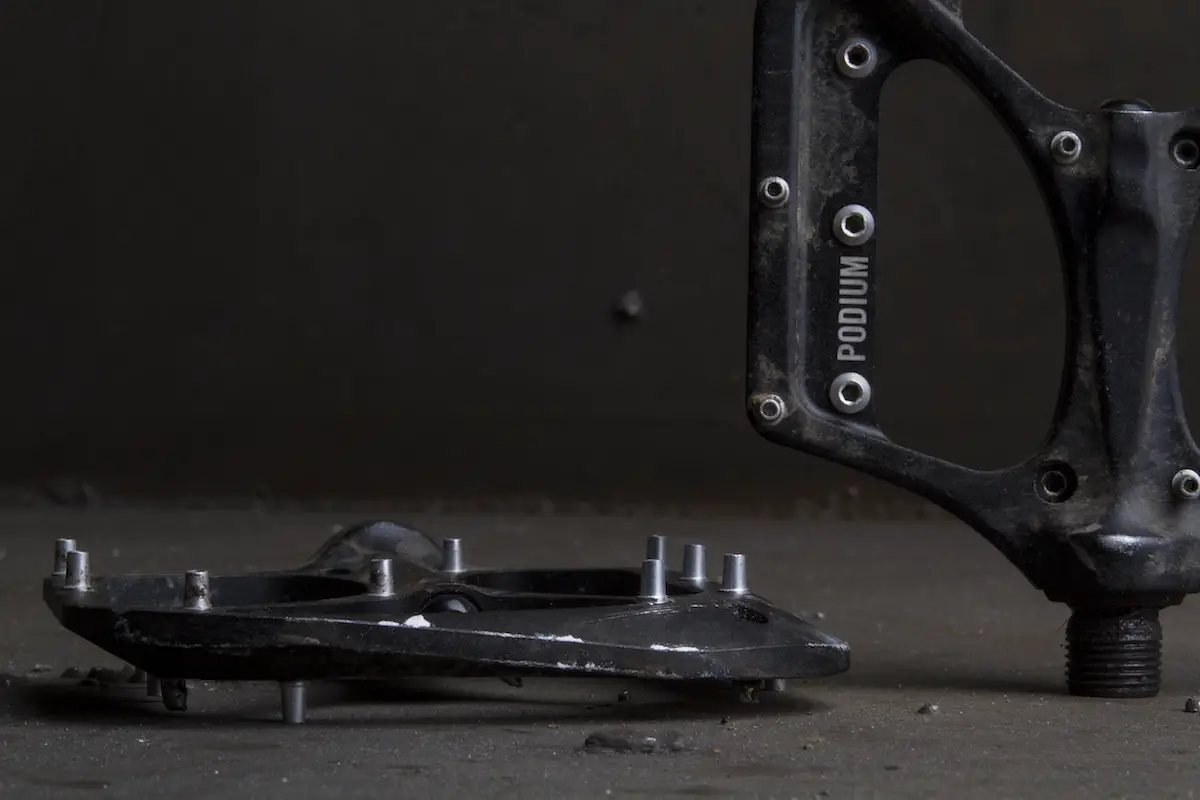
Most of them battered through this treatment on rocky traverses with just a bent pin or two, but taking these Gamuts over a local trail, named the Mordor Traverse, revealed the only flaw I could find in them: alloy pins. They’re incredibly weak, and while the M5 pin thread is beefed up compared to most pedals, it doesn’t really help shore up such a soft material.
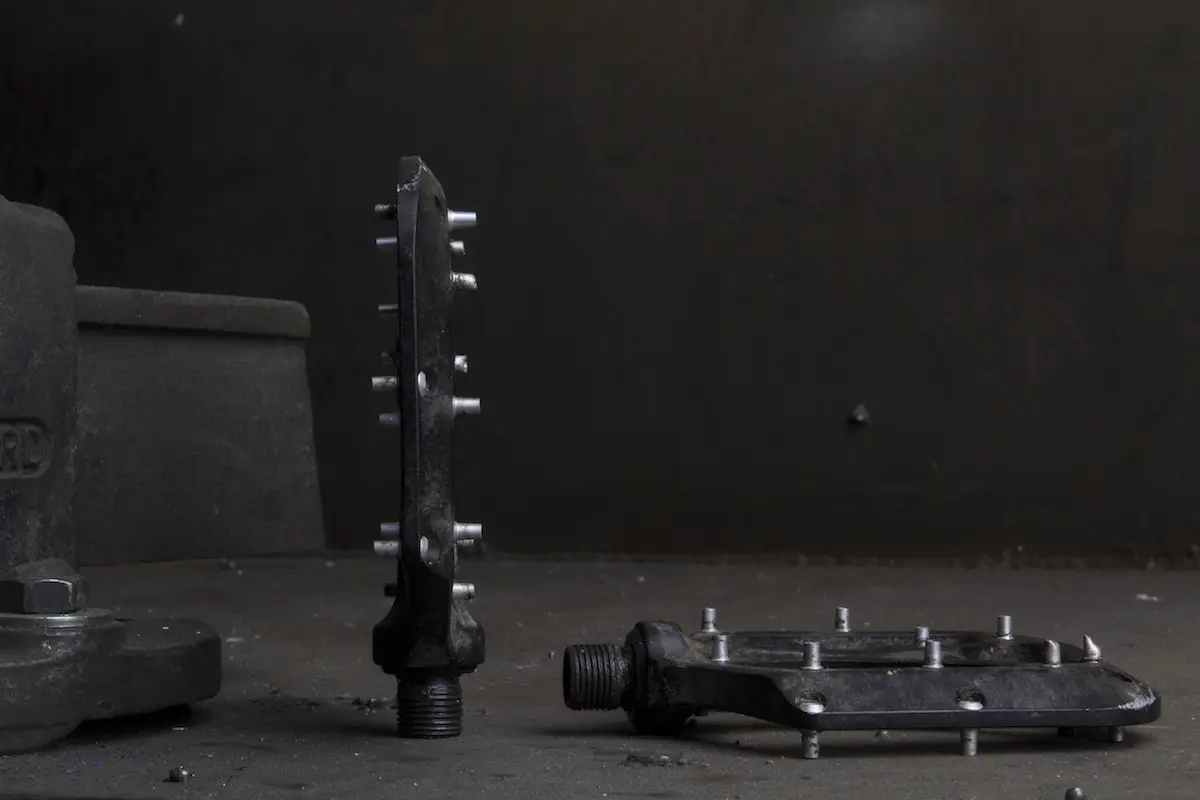
One strike in particular shaved three pins completely flat, and at the end of the ride they looked like Monsieur Mangetout had been nibbling on them. Thankfully the pins use through holes combined with allen sockets at the back, so removing bent or broken ones is very easy. Gamut do replacement steel pins, which, over alloy ones, are only a 20 gram weight penalty for a complete set. At the very least, I’d recommend you, or perhaps Gamut, replace the underside leading edge pins with steel.
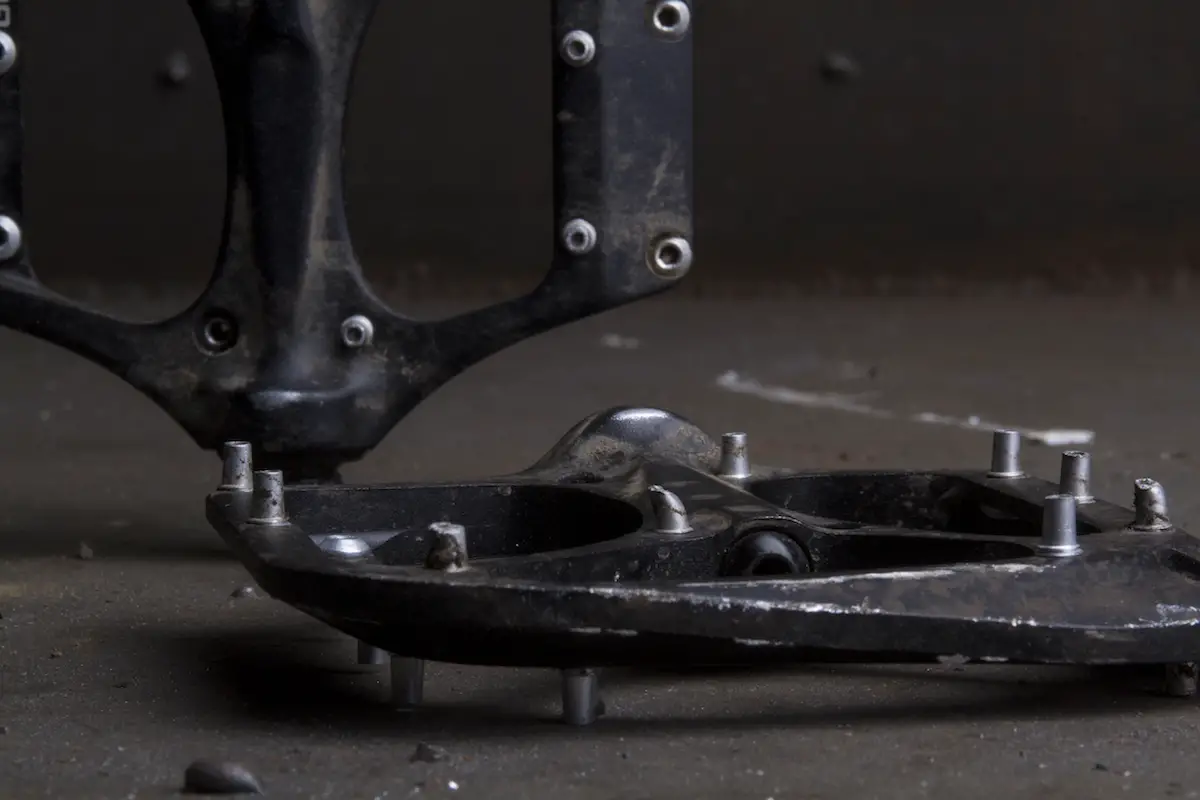
The bodies at least are very tough, only showing scratches despite some very hard whacks. Leading edge ramps greater than 45 degrees also deflect impacts easily. In terms of aesthetics, the Podiums are very flowy and organic, which might matter to you, and if so I can say these are easily one of the most handsome pairs of pedals we have on test – they are beautifully crafted hunks of aluminum.

Overall
A spectacular, thin, very flat, fully featured pedal, let down slightly by alloy pins. That’s fixable though, and if you want a pedal with no compromises on weight, thickness and feel these are probably for you.






I have some of these and have some reservations. Four days in the Lake District saw a few pins shaved flat, many more damaged and one appears to have been ripped out probably (I will check) taking the threads with it. Steel pins will be harder wearing but I’m worried that they will simply be ripped out damaging the pedal body. Maybe the soft alloy pins are a sacrificial compromise?
That’s worth considering for sure. I probably have a little reviewer bias in that I have the tools around to fix threads… and I’d be willing to JBWeld something in place if that didn’t work 🙂
That said I’ve only had a pin rip threads out of a pedal body once in the last decade or so (old style generic Nanos). I put some steel pins in the front underside holes of these Gamuts, they’ve had a few strikes but so far the bodies are holding up to it.
Gamut’s steel pins seem less likely to rip threads out thanks to the flared base; Hope pins are also M5 and fit these, but don’t have the large base on the underside so may be more likely to rip out.
They are lookers! It continues to bewilder me how widespread is the unwillingness to look beyond nanos, vaults, f20s… (as good as they are).
I will give the steel pins a go nach. The threads in mine were in fact fine so either I hadn’t tightened my missing pin correctly or it was loosened by the battering it received.
My experience:
Best pedals so far – and I’ve had a lot! 10 pairs or so… Superb grip, thin profile and good design with dirt/mud clearance etc. Bearings instead of bushings makes it easier to restore them to like new condition and stops them from developing play all the time as bushing has a tendency to do.
Haven’t had any real issues with the alu pins. Bent a few ones but nothing out of the ordinary and if I do brek more than I feel like, then I can always opt for the steel ones. Use them for anything from XC to DH.
Bearing life could be better, but still way better than any pedals with bushings I’ve tried. When you change to new bearing they will feel like new again, unlike bushings that will have worn the axles too and be more prone to let dirt in and last shorter and shorter time. Tip: cheap bearings can be found at kugellager-express in germany. I bought a bunch of them and now I can change them in no time and have pedals that run like new again 🙂